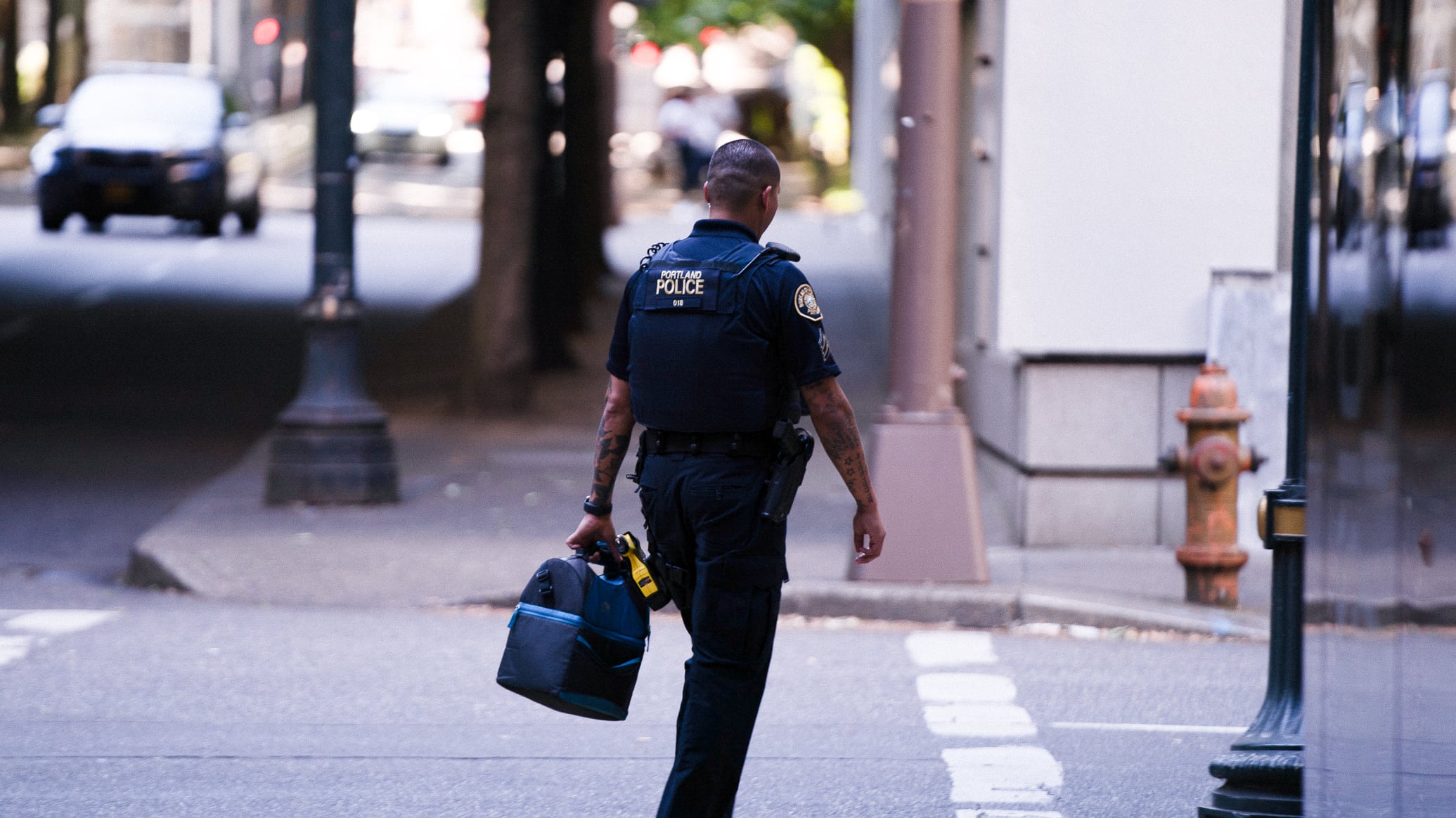The Wednesday meeting of the Portland City Council was abruptly canceled late Tuesday night.
That’s because at least four councilors said they would not enter City Hall while 11 members of American Federation of State, County and Municipal Employees Local 189 are striking after they failed to reach a contract agreement with city bargainers late Tuesday night.
Council President Elana Pirtle-Guiney and Councilors Eric Zimmerman, Dan Ryan and Jamie Dunphy said they would not attend the council meeting because they would not cross the picket line. A handful of other councilors had pre-filed absences for unrelated reasons, leaving the council likely without a quorum, and therefore unable to perform city business.
“Our top priority in making this decision was ensuring that Portlanders who were signed up to provide public testimony didn’t spend their time coming downtown to a meeting where we didn’t have a quorum of councilors,” Pirtle-Guiney tells WW.
But what makes the cancellation noteworthy is that the 11 city employees striking belong to an office that’s undergoing great change and, in some ways, is mired in the debate about what true police accountability does and does not look like.
The striking employees staff a police accountability body called Independent Police Review that’s existed since 2001.
That body, which is by city law its own agency, hears complaints of alleged officer misconduct and presents its findings to the Portland Police Bureau. IPR staff do much of the investigatory work. However, the Police Bureau has final say in any discipline imposed on an officer found guilty of misconduct, leading some police accountability advocates to say that IPR is not wholly independent of police, but in fact just an arm of the Police Bureau.
In 2020, Portland voters decided overwhelmingly at the ballot box to scrap IPR and instead implement a new accountability body.
The new governing body, which will begin its work next year, is called the Community Board for Police Accountability, a 21-member group that will have far greater powers to impose discipline on officers, and stronger investigative powers than IPR has.
While police accountability advocates cheered the new body, former city commissioners worried that its powers would be too sweeping and that it would give police critics too much say in officer discipline. The police union tried in 2024 to greatly weaken the powers of the new body and failed.
AFSCME bargainers are demanding that the new contract guarantee IPR staff positions in the new office that will support the CBPA, to be called the Office of Community-Based Police Accountability.
The city says promising that in the new contract would violate the city charter “because the City Charter gives hiring authority to the new office’s Director, not to City management or labor agreements.” (The director of the new office that supports the CBPA will be appointed by the board itself.)
“Guaranteeing direct placement would violate City Charter by overriding the Director’s authority,” city spokeswoman Alison Perkins said in a Tuesday evening statement.
AFSCME disagrees, stating in a Tuesday press release: “Workers are going on strike due to the city of Portland’s outright refusal to offer positions doing the same or similar work in the new police oversight board to these experienced public servants.”
Zimmerman has tried in recent weeks to bring a resolution to the council that would give that guarantee to the 11 employees: that the director of the new office give first hiring preference to them. Zimmerman’s resolution also asks that if an IPR employee applies for one of the jobs but isn’t selected, that the director explain why in an executive session to the council.
Zimmerman’s resolution never made it to the council’s agenda. He needed nine signatures to put it on the council’s nine-twelfths agenda, and the majority of the progressive caucus did not sign. (Councilor Jamie Dunphy, a progressive caucus member, did sign it. Dunphy also filed an absence for this morning’s council meeting, saying he wouldn’t cross a picket line.) Zimmerman now alleges members of the council’s progressive caucus are intentionally punishing the IPR workers.
“Unfortunately, there are some sort of internal politics or external politics that are keeping the progressive caucus from working to protect the pure existence of this group of workers,” Zimmerman says.
Councilor Mitch Green tells WW that Zimmerman’s allegations are “baseless."
“I don’t know where he’s getting this idea. These allegations are baseless,” Green says. “I didn’t sign [his resolution] because I don’t think it can hold up to the charter.”
Pirtle-Guiney says her decision to not attend the council meeting Wednesday morning was unrelated to the debate over accountability. “This isn’t a hard decision or a political decision,” Pirtle-Guiney says. “I don’t cross picket lines.”
Green says he will “respect the rights of workers to strike” and hopes that the bargaining process concludes swiftly.

